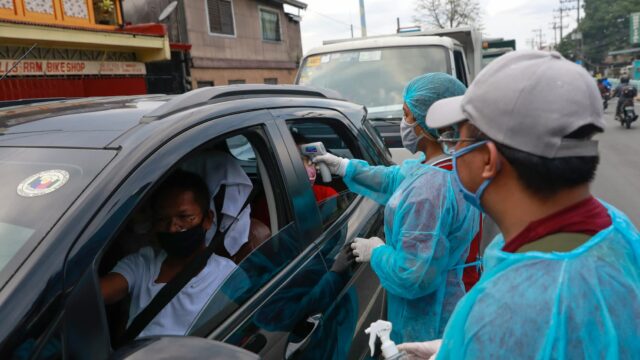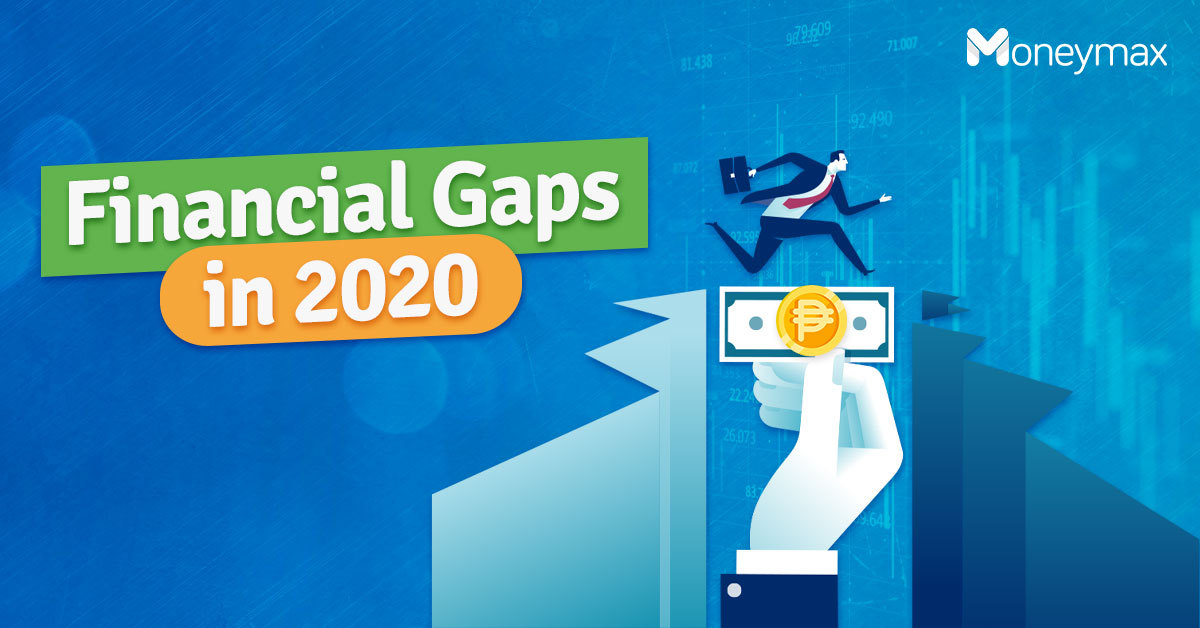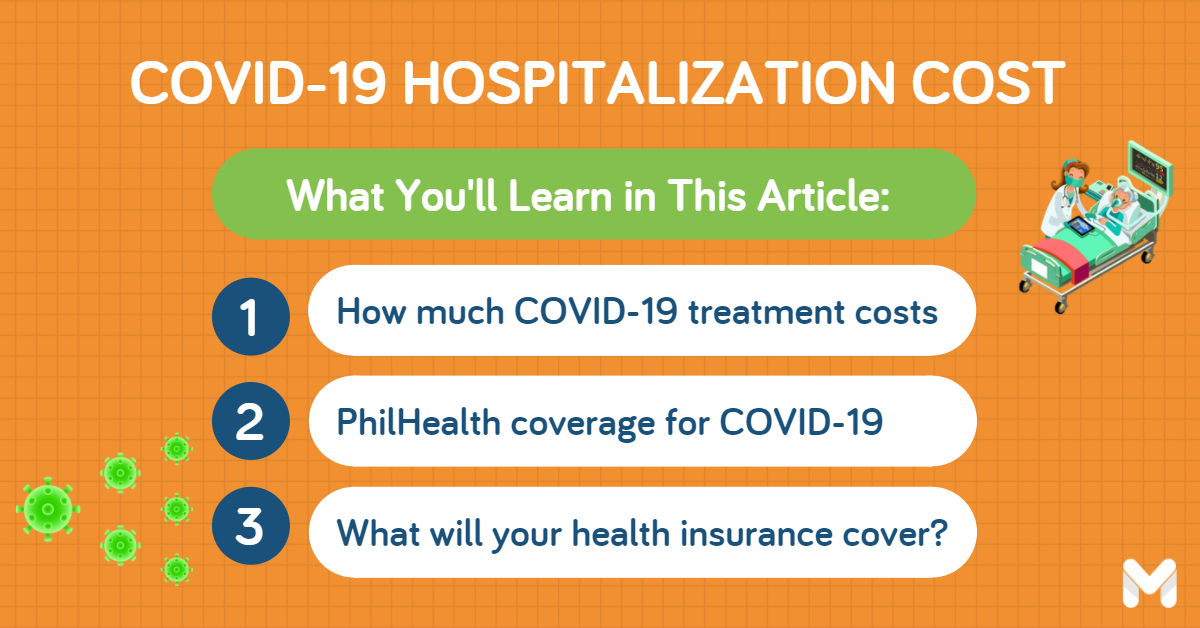No one expected a pandemic to ruin everyone’s plans in 2020. And whether we like it or not, we can never go back to the way things were. COVID-19 changed the way we live in more ways than one, so much so that we are all forced to live “the new normal.” As early as now, you should familiarize yourself with these changes.
The House of Representatives even filed a new bill to try and educate everyone on how to live the post-lockdown life. House Bill No. 6623 or The New Normal for the Workplace and Public Spaces Act of 2020[1] set some parameters to help navigate these uncharted waters. What exactly is the new normal and what can you expect from it?
What is the New Normal?
The Inter-Agency Task Force for the Management of Emerging Infectious Diseases (IATF) defines the new normal[2] as the “emerging behaviors, situations, and minimum public standards that will be institutionalized in common or routine practices” that will remain after the lockdown and while COVID-19 isn’t totally eradicated.
These public standards include policies banning large social gatherings, requiring face masks, encouraging public distancing, among others. Basically, we have to minimize physical contact with others to avoid spreading the virus to everyone. In order to continue living under the threat of a pandemic, we need to follow the new normal guidelines.
ECQ vs. MECQ vs. GCQ

The IATF defined the four types of community quarantine currently enforced nationwide in the Philippines. Malacañang has since warned the public that there will be a stricter lockdown due to the rise of road traffic and quarantine violators[3].
Enhanced Community Quarantine (ECQ)
ECQ refers to “the implementation of temporary measures imposing stringent limitations on movement and transportation of people, strict regulation of operating industries, provision of good and essential services, and heightened presence of uniformed personnel to enforce community quarantine protocols.” ECQ is currently the strictest form of quarantine.
Areas Under ECQ: Cebu City, Mandaue City
Read more: If I Get COVID-19, How Much Do I Need to Pay?
Modified Community Quarantine (MECQ)
MECQ refers to “the transition phase between ECQ and GCQ, when these temporary measures are relaxed: stringent limiting of movement and transportation of people, strict regulation of operating industries, provision of food and essential services, and heightened presence of uniformed personnel to enforce community quarantine protocols become less necessary.”
Areas Under MECQ: Metro Manila, Bataan, Bulacan, Nueva Ecija, Pampanga, Zambales, Angeles City, Laguna
Activities Allowed Under MECQ
- Everyone is encouraged to stay at home, but only one authorized person per household can go out to buy essentials or go to work. Persons below 21 years old and above 60 years old are also prohibited from going out.
- Outdoor exercise like jogging and biking are now allowed, provided that people wear masks and stay at least two meters apart.
- Public gatherings, including religious gatherings, of no more than five people are now allowed, provided they wear masks and practice social distancing.
General Community Quarantine (GCQ)
GCQ refers to “the implementation of temporary measures limiting movement and transportation, regulation of operating industries, and presence of uniformed personnel to enforce community quarantine protocols.” It is a more relaxed version of the quarantine
Areas Under GCQ: The rest of the country
Activities Allowed Under GCQ
- Anyone can go out to buy essentials or go to work, but high-risk persons (e.g. elderly, toddlers, persons with auto-immune diseases) are not allowed to go out.
- Outdoor physical activities are limited to contact sports like tennis, golf, etc.
- Public gatherings, including religious gatherings, of no more than 10 people are allowed, provided they wear masks and practice social distancing.
Modified General Community Quarantine (MGCQ)
While no part of the country is under MGCQ, it is the lowest form of quarantine that will help usher in the new normal. MGCQ refers to “the transition phase between GCQ and New Normal, when these temporary measures are relaxed: limiting movement and transportation, the regulation of operating industries, and the presence of uniformed personnel.”

Business Operations in the New Normal
In the new normal, expect to see businesses make drastic changes to comply with IATF’s health protocols. Some companies will provide slower service due to limited manpower, while others will remain closed until the COVID-19 pandemic is eradicated.
Industries Allowed to Open Under MECQ
MECQ guidelines allow essential industries like health care, pharmacies, food manufacturing, supply chains, and groceries to operate at full capacity.
- Agriculture, forestry, and fisheries
- Manufacturing of essential goods
- Hospitals and non-aesthetic clinics
- Essential retail (groceries, markes, drug stores)
- Laundry shops
- Food preparation and water refilling stations
- Logistics, delivery, and pabili services
- Utility services (power, energy, water, etc.)
- Repair and installation of machinery and equipment
- Telecommunication companies
- Energy companies (refineries, depots, etc.)
- Gasoline stations
- Construction of DPWH-approved healthcare facilities
- Media establishments
- Mining and quarrying
- Electronic commerce companies
- Postal, courier, and delivery services
- Export-oriented companies (shuttle services, etc.)
- Repair of computers and personal and household goods
- Housing service activities
- Special accommodations for frontliners and OFWs
- Business Process Outsourcing (BPO)
- Banks, money transfer services, pawnshops, credit cooperatives, and microfinance institutions
- Capital markets (BSP, SEC, PDEC, etc.)
- Rental and leasing, other than real estate
- Employment activities (recruitment, placement, etc.)
- Telehealth or Online Medical Consultation
Read more: 5 Ways to Save Your Small Business from a Pandemic

Industries Allowed to Open at Partial Capacity
Other industries like real estate, advertising, clothing, film, and music production and bookstores can operate at 50% or partial capacity. This means that the following businesses have to cut their workforce into halves, with one half working on-site and the other half working remotely.
- Government offices
- Manufacturing of non-essential goods
- Real estate activities
- Large-scale construction projects
- Office administrative and office support
- Accommodation for guests
- Funeral and embalming services
- Veterinary clinics
- Security and investigation activities
- Other financial services (money exchange, insurance, etc.)
- Legal and accounting
- Management consultancy activities
- Architecture and engineering activities
- Scientific and research development
- Advertising and market research
- Computer programming
- Publishing and printing activities
- Film, music, and TV production
- Other activities (photography, fashion, design)
- Wholesale and retail trade of motor vehicles
- Repair of motor vehicles
- Malls and commercial centers
- Dining and restaurants (no dine-in, delivery and takeout only)
- Hardware stores
- Clothing and accessories
- Mall-based government frontline services
- Bookstores and school and office supplies
- Baby care supplies stores
- Pet food and pet care supplies
- IT, communications, and electronic equipment
- Flower, jewelry, novelty, antique, and perfume stores
- Toy stores (playground and amusement areas closed)
Industries Not Allowed to Open
Under the GCQ, most industries can continue their operations as long as they maintain proper health protocols. All quarantine types prohibit these industries from operating.
- Gyms and fitness centers
- Entertainment industries (cinemas, theatres, etc.)
- Kid amusement industries
- Libraries, archives, museums, and cultural centers
- Tourist destinations (water parks, beaches, resorts)
- Travel agencies
- Personal care services (salons, massage parlors, etc.)
Read more: Financial Lessons the COVID-19 Pandemic Is Teaching Us
Workforce in the New Normal

Since most industries started operating under MECQ, some companies started welcoming back their employees to their respective offices. They need to follow some return-to-work protocols before continuing their operations.
- Companies should make work-from-home arrangements the default setup and on-site arrangements as the exception.
- The government requires companies to provide shuttle service to their employees, especially in areas with no public transportation. Malacañang even advised companies to remain closed if they can’t provide transportation for their employees[4].
- Companies are required to conduct antibody testing and confirmatory polymerase chain reaction (PCR) testing for their on-site employees to ensure that no one among them is sick in any way.
Read more: Unemployment Benefits and Other COVID-19 Government Assistance Schemes
Employed Workers
Employed workers are allowed to drive to their workplace, as long as they are following the standard health protocols. You just have to present your company ID at checkpoint areas.
Also, a vehicle can only seat two persons per row to observe proper social distancing. While carpooling is still encouraged, the priority right now is to make sure each passenger is seated at least one meter apart.
Self-Employed Workers
Self-employed workers and freelancers can now drive out of their homes by making their own work IDs[5]. This can count as valid ID at checkpoint areas.
Your makeshift ID must contain the nature of your work, as well as the industry you belong to. Make sure your industry is included among the ones that are currently allowed to operate.
Read more: 6 Tips to Get a Personal Loan for Freelancers in the Philippines
Public Transportation in the New Normal
In the new normal, public transportation will also undergo drastic changes. For starters, expect more social distancing protocols that will hopefully lead to a less crowded and more comfortable commute.
Under MECQ, public transportation and domestic flights are prohibited while only a limited number of international flights are allowed. Meanwhile, workers are also allowed to leave their area to go to work in GCQ areas and vice versa.
Non-essential or non-work-related travels are still prohibited under any type of quarantine. The IATF are currently limiting travel for leisure and visiting relatives, especially from MECQ areas.
MRT and LRT

MECQ still prohibits the operation of Metro Manila's train systems, but the Department of Transportation (DOTr) already made preparations for the new normal by enforcing various protocols to promote social distancing.
Both train systems will operate on a limited capacity. LRT 1 will seat 43 people per car, LRT 2 will seat 40 people per car, and MRT 3 will seat 51 people per car. One downside is that the waiting time at train stations could last 2-3 hours[6].
Commuters will also undergo strict security measures before entering the train station. Only three passengers are allowed to line up per teller and only six are allowed per turnstile.
The DOTr placed special markers for commuters inside the train and in the station platform to guide commuters on where to sit or stand. The Philippine National Police (PNP) will also assign 100 policemen to maintain order once the train systems are operational.
Public Vehicles

GCQ guidelines allow public transportation and inter-island travel, as long as they follow the standard health protocols.
DOTr released the guidelines for seating arrangements in public transport vehicles. Generally, public vehicles can only seat at least 50% capacity. Drivers and passengers should also wear face masks at all times.
The one-seat apart seating arrangement scheme applies to all types of transport vehicles, including ride-hailing services.
Jeepneys in GCQ areas started complying with this protocol by adding partitions to their passenger seats.
Meanwhile, tricycles can only seat one passenger per ride with no back rides.
Bicycles
With almost all forms of public transportation closed, bicycles will be the new norm in the new normal. Biking will lead to decongested roads and less crowded public transport.
To help spearhead the biking culture, Senator Pia Cayetano filed the senate bill Safe Pathways Act that will require the DOTr and DPWH to provide pop-up bicycle lanes and emergency pathways to form a "people-oriented and pedestrian-friendly" network[7].
Biking organizations in the Philippines also pledged to help government projects focused on setting up biking lanes on major roads nationwide[8].
Read More: Biking in Manila? Here’s Where You Can Buy Cheap Bikes Plus Safety Tips
Education in the New Normal

All quarantine guidelines prohibit physical attendance in schools. Despite this, the Department of Education (DepEd) already announced that they will open the SY 2020-2021 on August 24, 2020. DepEd and the IATF arranged the following continuity plan[9].
- Opening of classes for the basic education shall be on August 24, 2020 and ending on April 30, 2021.
- Opening of private schools will be allowed within the period provided by law. Provided that school learning continuity plan shall be submitted; no face-to-face classes will be allowed earlier than August 24, 2020. And from August 24, face-to-face learning shall only be allowed when the local risk severity grading permits, and subject to compliance with minimum health standards.
- Adoption of various learning delivery options such as but not limited to face-to-face, blended learnings, distance learnings, and homeschooling and other modes of delivery shall be implemented depending on the local COVID-19 Risk Severity Classification and compliance with minimum health standards.
- Conduct of curricular and co-curricular activities involving gatherings such as science fairs, showcase of portfolios, trade fairs, school sports, campus journalism, festival of talents, job fairs, and other similar activities is cancelled, except those conducted online.
What is Distance Learning?
With face-to-face classes out of the picture, the new normal will usher a new way of educating students through distance learning platforms. Distance learning is basically any procedure that will facilitate a contactless way of learning, mostly through digital means.
Some teachers have reportedly used various apps like Google Classroom, Google Hangouts, Moodle, Edmodo, Skype, and Zoom to conduct online classes. Meanwhile, the University of the Philippines made their Open University’s Massive Open Online Courses accessible via their website to facilitate better online classes[10].
What is DepEd Commons?

DepEd already launched their own distance learning platform called DepEd Commons[11]. It contains an archive of educational materials authored by public school teachers.
Students can access review materials while teachers can reuse, revise, and redistribute educational materials completely online. As of March 17, 151,749 teachers have used the platform to conduct online classes.
In partnership with Globe, Smart, the Department of Information and Communications Technology (DICT), and the National Telecommunications Commission (NTC), students and teachers can access DepEd Commons for free.
Banking in the New Normal
While banks can fully operate under MEQC and GCQ, you still don’t want to risk going out and contracting COVID-19 just to do some transactions. That’s why the new normal will see the rise of online banking as the default banking method nationwide.
It also helps that online banking is super convenient even without the threat of a pandemic. You can do almost all banking transactions from your smartphone nowadays. And thanks to digital banks, the Philippines is one step closer to being a cashless society.
Online Banking Apps to Check Out

If you want to manage your savings and other bank accounts in the new normal, these are the online banking apps you should have on your smartphone.
ING Philippines
Open a brand new high-interest savings account with the ING Philippines app. All you need to do is download the app, prepare the requirements, follow the on-screen instructions carefully, and you can now grow your money faster in the new normal. Opening an account today until July 31 qualifies you to their 4% interest rate per annum promo.
Read more: How the COVID-19 Pandemic is Changing the Way We Bank
CIMB Bank
If you’re looking to do more with your online bank account, then try opening one with CIMB Bank. Just like ING, the process is completely digital and your account can earn up to 4% interest rate per annum. You can also apply for a personal loan through the CIMB Bank app.
UnionBank
UnionBank is one of the first traditional banks to make the jump to digital. And because of that, they are now recognized as one of the best digital banks in the country. So if you’re looking for a bank that’s not completely digital, then download the UnionBank app. From there, you can open a bank account, send money, pay bills, and more.
Maybank
Maybank is also a traditional bank offering a fully digital savings account, the iSave Account. If you open an account with the Maybank app today, you can earn a bonus interest of 2% per annum on top of the regular tiered interest rate of 2% per annum from April 1, 2020 until June 30, 2020.
Your Current Bank’s Banking App
But if you’re looking to stick with your current bank, you can simply download your bank’s official online banking app on your smartphone. Every bank in the Philippines has a corresponding app as part of their effort to promote contactless transactions.
Mobile Wallet Apps to Check Out

Online shopping won’t stop in the new normal, but you need a mobile wallet if you want a more seamless shopping experience. Consider installing these mobile wallet apps.
GCash
GCash is currently the most versatile mobile wallet app in the Philippines. With the GCash app, you can transfer funds, save money, pay bills, buy load, and invest for as low as PHP 50. You can also claim a GCash Mastercard that you can use for both online and in-store purchases. You can even get a credit line of up to PHP 10,000.
PayMaya
If you love cash backs and other exclusive promos, just download the PayMaya app and follow all the verification steps. Once you’re done, you can use your PayMaya wallet to send money, pay bills, and buy prepaid load while you enjoy cash backs for every payment. You can also use your PayMaya virtual card to safely shop online.
Coins.ph
Coins.ph is the only mobile wallet in the Philippines that is powered by blockchain technology. This means that you can send and receive bitcoins through the Coins.ph app. This mobile wallet features basic mobile wallet functionalities and more, even for non-bitcoin users.
GrabPay
GrabPay is the mobile wallet within the Grab app that lets you pay for all Grab services seamlessly. You can also use GrabPay to shop online and in-store, pay bills, and buy prepaid load, all in one place. Every payment earns you a GrabReward, which you can then use to access exclusive Grab discounts and promos.
Other Things to Avoid in the New Normal
- Avoid throwing large parties or gatherings. No more big parties, gatherings, or mañanitas for now. Unless you have a small circle of family and friends of five persons, celebrate special occasions more discreetly.
- Avoid going to the mall. Since the MECQ prohibits loitering in malls, don’t go to the mall if you have nothing essential to do there. Malls will also turn off free WiFi and air conditioners to discourage loiterers[12].
- Minimize physical contact. That means no more shaking hands, beso-beso, or even hugging, at least for now. This limits the transfer of the virus from person to person.
- Avoid spitting in public. COVID-19 or not, spitting in public is a disgusting habit anyway. Now’s the perfect time to kick the habit.
Final Thoughts
The new normal may not be as ideal as the old one, but it is the current reality facing us. We can’t be forever on pause, so start adapting to the new normal and continue living life as normally as possible. Because the COVID-19 simply isn’t the end of life as we know it—it’s just a huge hurdle we need to overcome.
Sources:
- [1] House execs define ‘new normal’ in newly filed bill
- [2] Omnibus Guidelines for Community Quarantine
- [3] Govt to enforce stricter quarantine guidelines amid rise in road traffic, violators
- [4] Palace: Business that can't provide rides for employees should stay closed during MECQ
- [5] Self-Employed Workers Can Make Own IDs for Travel During MECQ and GCQ
- [6] MRT passengers told to allot 2 to 3 hours for boarding once operations resume
- [7] New Normal: Are We Finally Getting Bicycle Lanes in the Metro?
- [8] Cycling chiefs call for ‘bike culture’ in PH streets
- [9] IATF Approves the BE-LCP, School Opening on August 24, 2020
- [10] How Metro schools continue lessons amid coronavirus threat
- [11] DepEd Commons
- [12] Free WiFi no more, warmer air-conditioning: Some malls allowed to reopen











